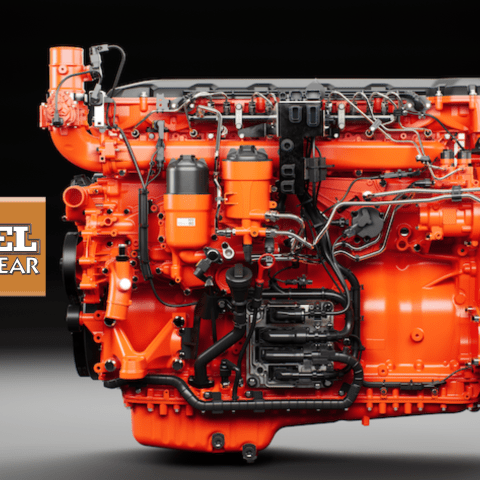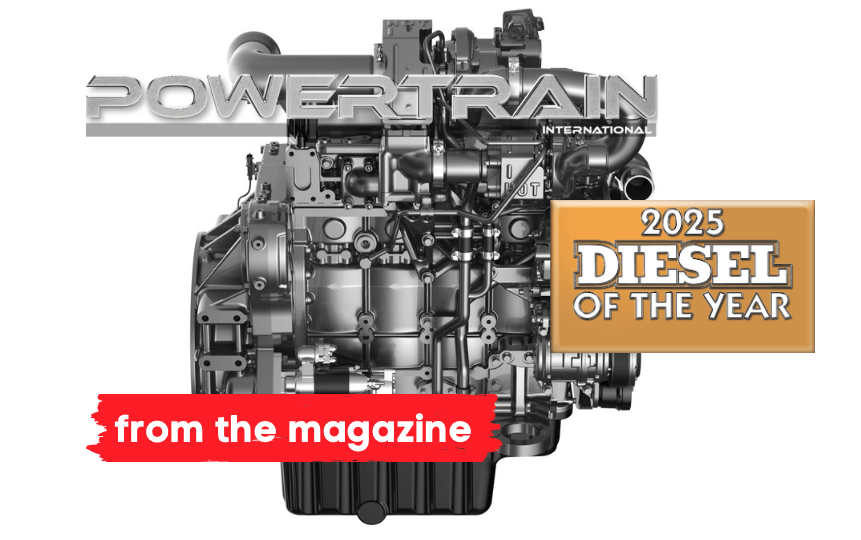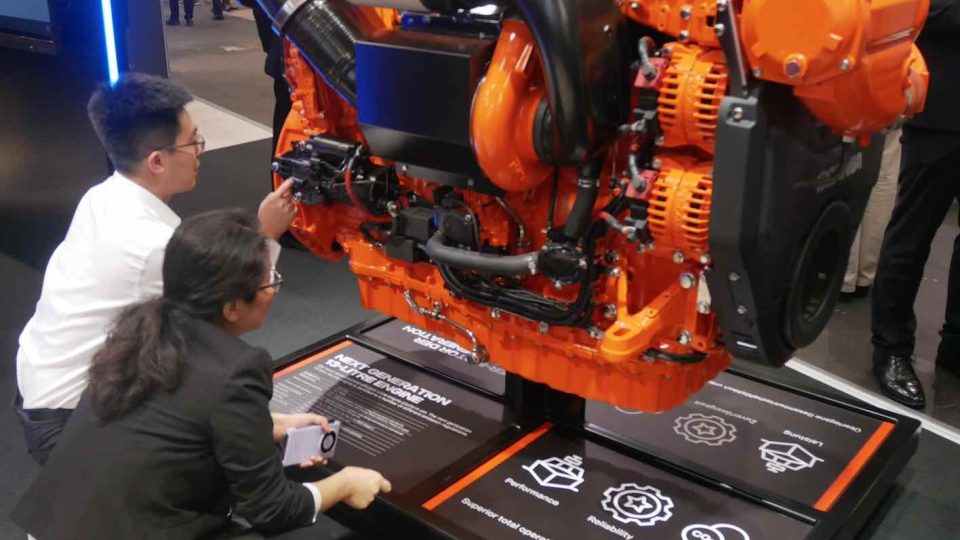Diesel of the Year 2023: the winner is… Scania Next Generation DC13!
Scania Next Generation DC13 engine was awarded Diesel of the Year 2023. It is the first industrial engine to break the “sound barrier” of 50% efficiency

You think of Scania and link that brand to the “premium” identity of a truck, especially the heavy long-haulers. You think back to Scania trucks, lift the bonnet and find one of the trio: 9-, 13- and the “ethernal” 16-litre V8. From 2023 onwards, when you take a moment to think about Scania, your thoughts will also have to turn to the Gryphon’s status among industrial applications. The Next Generation DC13, an evolution of the DC13, was awarded the 18th Diesel of the Year.
For the very first time, Scania has entered its name on the palmares, overturning an ostracism that is not due to any prejudice, but to the simple fact that until now the Diesel of the Year has rewarded a newly designed engine block (in the present and near future much will depend on the extent and speed of the haemorrhage of investment in endothermic engines). The key yardstick for this award, however, continues to be the principle of innovation. And the Next Generation DC13 performs this in the best possible way. In Södertälje they have optimised the cylinder of the 13-litre, (BxS 130×160 mm) and overturned the engine block, which has achieved a prestigious result, until now inaccessible to competitors, among industrial applications: the 50% efficiency target. Even for Weichai, which was the first to cross this threshold, later adjusting it upwards, together with Bosch. A record, however, limited to the roadside.
Let us quote Henrik Nilsson, “Our mindset throughout the development of the new platform has been to ease the transition for our customers while positively impacting fuel efficiency and product performance.”
The enhanced gas exchange system, reduced internal friction, and increased turbocharger efficiency all have a positive impact on the fuel-efficiency. The specific consumption curve is drawn in such a way as to enhance the sobriety of the combustion cycle. Road tests, carried out on trucks on commercial routes, not conceived for the simple use of marketing data sheets, confirmed the values recorded on the test bench: the reduction in consumption can be accounted for, on average, between 8% and 10%. The time between overhauls is up to 25,000 hours. The 13-litre engine has a power range from 368 kW to 450 kW and delivers up to 11 percent more power and 21 percent more torque than DC13.
Let me now say a brief, deliberately provocative statement. Does it make sense to reward a diesel cycle engine when the ghost of a ban on the ICE is looming over Europe? The answer can only be one: of course! Because the guidelines of the policy makers and part of public opinion clash with infrastructure and reality. The diesel engine has a long life ahead of it, with the burden of providing the best possible efficiency. Environmental concerns and the budgets of OEMs and end users require it. A starting point that allows us to engage the reasons for DOTY 2023.
As I mentioned, this award is first and foremost an acknowledgement of Scania’s massive investment. We are certain that the shipyard and power generation OEMs will have the chance to meet and appreciate the frugality of an engine that aims to reduce CO2 impact without the need for huge infrastructural investment and regulations alchemy. The specific curves stand up to a peer-to-peer comparison (we have already proven this with an 11-litre diesel engines comparison. Scania’s plan has in fact included a modular, scaled-down 5-cylinder version). Rise is promising, making it easier to approach both translation and peak loads. The engine configuration, features and specific performances are fit to face a triple challenge, for the survival of ICE in a holistic perspective: to accomplish the future Euro 7 and Stage VI parameters (if there will be any); to “digest” HVO and biogenic and paraffinic fuels; to embrace electrification.
And here the Gryphon flies upon the wings of the wind: in fact, the Scania Power Solutions electric module dates back to November 2021. If it’s roses, they will flourish, and we are confident that it will be a spring revival. Not only in Södertälje.








